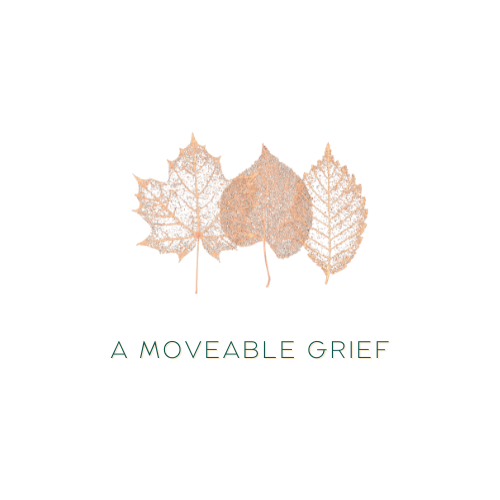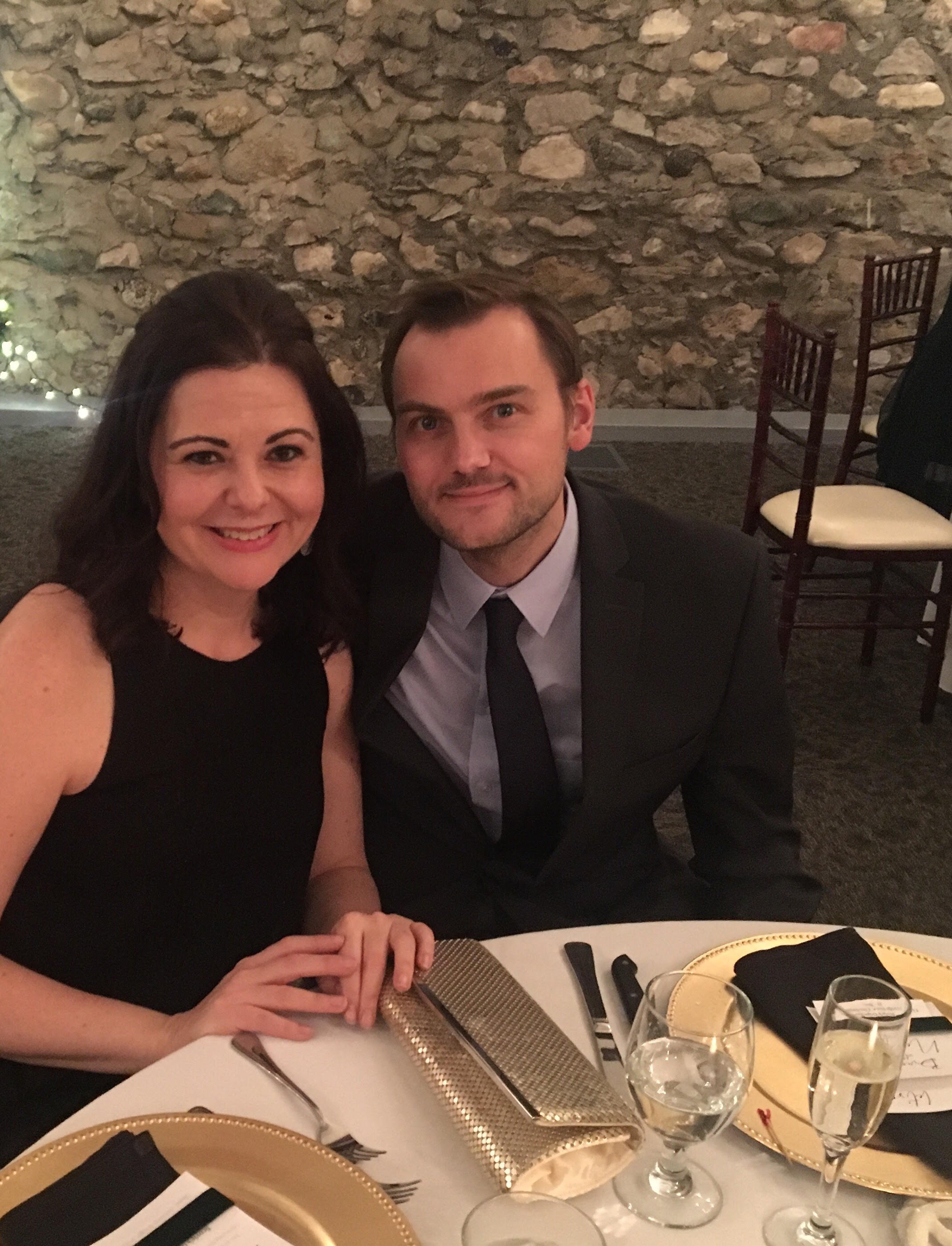A Few Tips for Surviving The Death Experience
Let’s Talk About Death and Big Funeral
I attended my first Death Café last week. Deep into the grief space the last couple years, reading books, taking courses about the topic, scrolling endless Instagram posts from experts and non-experts with quotes and metaphors about the grief experience. I reached the tipping point when I found myself watching a TikTok video of a recently widowed woman crying prettily in the woods while a Taylor Swift song played. I needed a break from grief, real, performative and instructive, and putting my toe into the death space seemed like a meaningful detour. I imagined a room of goth-adjacent individuals like Orin from Parks & Rec dressed in drape-y black clothes milling around like crows ready to seize on some salacious death ritual topic. Instead, I walked into a room of friendly people of all ages, their chairs seated in a circle. The overall look was late summer pastels and Danskos than Doc Martens. Like a neighborhood social, but the topic was death as opposed to how to deal with pesky squirrels.
A Pregnant Woman, a Death Doula, and Brad Pitt Walk into a Death Café
The cheerful Death Doula (yes, that is a profession and a much-needed one) who hosted kicked things off by giving the general rules of the Death Café [insert Fight Club joke here]: No political topics, be kind and respectful to others. Oh, and if any funeral professionals were in the room, kindly do not troll for potential customers. Playing cards were laid on some of the empty chairs, conversation starters, an un-menacing skeleton graphic hovered over questions like, “What do you most fear about death?” Our host likened the way we (don’t) talk about death to telling pregnant women, “Don’t worry about anything! The baby will come out in nine months, probably just fine. There’s some pain, but don’t even think about it now. Birth is totally normal. It will happen naturally. Your family can help you through it.” This is the best metaphor I have heard of how we as a culture approach dying. What I have learned is that Dying is one thing, The Death Experience (TDE) is another. TDE is like landing on a planet where you have a beginner’s grasp of the language, but not the customs and no one has time to explain them to you and suddenly you must triage a crisis.
In our small group, I was the only one to have experienced recent losses, so that gave me a funny feeling of being a worldly expert. It was a very different experience to talking about loss and grief, discussing The Death Experience felt more brass tacks, and there was a lot of laughing. You would think it would be difficult to sit down with strangers and say, “So, what do you want your funeral to be like?” or, “When was the first time you experienced death?” Surprisingly, it’s not. The conversation flowed easily, luckily, we had the host in our group to lend her insights. I learned A LOT. For example, the funeral lobby has a lot of power which dictates how and when and where we can die, and how much it will cost. No shock that a $20 billion industry has clout when it comes to what we deem as an acceptable or “honorable” memorial. But, I also learned that there are green cemeteries and more eco-friendly ways to be cremated and/or buried. Like this really beautiful spot, Forest Rest, in southwest Virginia where you can truly be returned to the earth with a natural burial and markers are carved on stones.
Life After Options
I shared a lot about my experience with Daryl. In my opinion, the most shocking part of TDE is how our medical establishment quarantines death as separate to overall wellness. I fully realize “death” is the antithesis to “well,” but facing death does make for better mental wellness in my experience. Medical advancements mean there are always options, until there are none. While that’s amazing (yay, science!), what the still fully cognizant loved ones needs to know is when approximately, do we leap from options to death? I’ve gone through this twice now that gray area where you know your person has limited time left, and yet you are waiting for someone at the hospital to “call it” is excruciating. Thankfully, palliative care and hospice exist, but as soon as you say “palliative” or “hospice” people immediately think “death,” so everyone puts off talking about it. We will all be there at some point, and if there’s any way you can prepare for it in advance (like, having an advanced directive or encouraging your parents to have one) DO IT.
For Daryl, the oncology team was great when treating his cancer, but not so great about treating his spirit. I don’t mean having deep conversations about the hereafter and meditating and journaling, I’m talking about mentioning early and often that social workers are available to help through the process, and palliative care exists as a bridge between treatment and death. Palliative care was vaguely referred to in passing at one of his early appointments, but since no one said directly, “By the way, when his body starts failing and there’s nothing more we can do than manage his pain, make sure to call palliative care.” That would have been helpful. Instead, the week he died, we had maybe an hour meeting with the team, who were wonderful angels of mercy and compassion, but we needed a little more of a transition period.
Doctors handle everything up until The Dying and then they are like an ex who ghosts you. I literally saw Daryl’s oncologist of nearly two years at the snack bar at the hospital while Daryl was in a room above us (literally, not figuratively) failing. When I called out his name, he looked stunned to see me. He had not been updated on my husband’s condition. While I understand on a practical and intellectual level why this was the case-- he had done as much as he could, a different team was handling it now--on a human- level, this man was once the person standing between life and doom. The awkward meeting felt a little jarring, but the truth is, when you have someone you love who is dying, you really don’t have a lot of time or energy to place on WTF is going on with other people. I registered his surprised expression as I grabbed my bag of pretzels, filed it away somewhere, and I moved on because TDE does not allow for breaks.
The Endless Night
“You should be a shepherd into a darkness and a place you will not be able travel...I could only take Daryl to the edge of both worlds, unable to cross that line. ”
The handful of days Daryl was home for hospice care are both a blur and so magnified I could piece together each day quite well if pressed. Time slows in a way that is so hard to describe. When you are the primary caregiver you must suspend your emotions and your own involvement with your loved one in order to survive. Not to say you are not treating them with love and having gasping sobbing moments on the bathroom floor, but there was a game face I had to employ to survive. You should be a shepherd into a darkness and a place you will not be able travel. I don’t see the darkness as something evil, lurking or scary, in my mind it is a beautiful starry night and there is the property of the living and the property of the dead, and I could only take Daryl to the edge of both worlds, unable to cross that line.
Witnessing Dying
For those who have not experienced it (which was me until October 2020), we envision hospice as a slow slide into a comfortable death, and that you are just in bed reading your favorite book or watching your favorite TV show and then you sigh into your pillow and the angels take you. I can assure only the blessed .0000001% of the population experience death in this way. Dying itself was something I was not fully prepared to witness. If I had known that I could hire a death doula to be there with us, I would have done it in a flash. The act of dying is a very physical experience, it involves losing control of your body and most of its functions, not unlike what happens to women during labor--plenty of fluids and a million stressful movements and sounds.
Weird and Mundane Death Logistics
I can also tell you that TDE involves a myriad of post-life decisions, as well as conversations with people who only speak in a tone of voice that is void of any extreme emotion, commonly recognized as “sympathetic,” or “funeral home director.” These calm-voiced people are suddenly emailing you numerous documents that include itemized pricing for things like “Outer Burial Urn Vault and “Direct Cremation with Minimum Alternative Container.” (In case you were curious a “Minimum” anything in the funeral industry usually means cardboard). You will need to make these plans relatively quickly, and even if you have decided the big thing (burial vs. cremation), you will be amazed by the additional options your brain will sort through going through the multi, multi-page catalog:
Do you want to scatter the ashes at sea or keep their remains (BTW, industry language is “Cremains”) or inter the urn? Remember! There is a difference between an urn you keep in your home and one that will be interred.
Okay, you want an urn? Do you want it to be wood or brass?
What do you want it to look like? Maybe a clock that you can put on your mantelpiece?
Wait, maybe you want to have a necklace for some of the cremains?
Do you want a lock of their hair?
Hang on, Is there someone else who will want some of the Cremains?
If so, what type of receptacle? Urn? Wood box? (Go back to the beginning)
Most of us have a general idea of if we want to be buried or cremated. After TDE, not only do I know I don’t want to be buried or locked in a clock for eternity, but I will also make sure my death plans will be more detailed and demanding than Beyonce’s rider.
We, the Living
The two hours spent in the Death Café group went by so quickly, it was such a unique experience--to fall into a group of strangers, discuss a very difficult topic, share our own intimate knowledge, ask questions and then go back out into the night. No phone numbers or emails exchanged, no pressure to see each other again, like a major life event one night stand. If a Death Café isn’t up your alley, maybe watch a documentary or read about end of life care. Think of it like putting on your own oxygen mask before helping others. Going through it the second time, with my mother, I knew the vocabulary, knew what and who to ask for and it was still one of the hardest experiences of my life, and while it was terrible, it was manageable.

